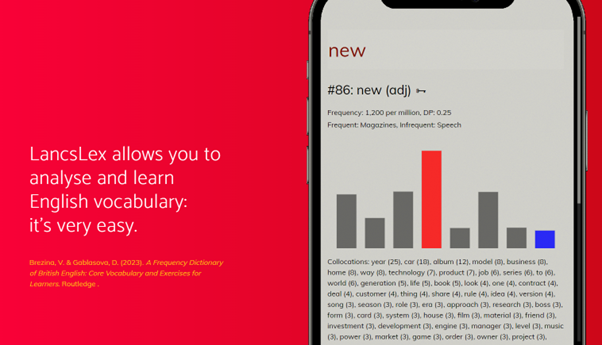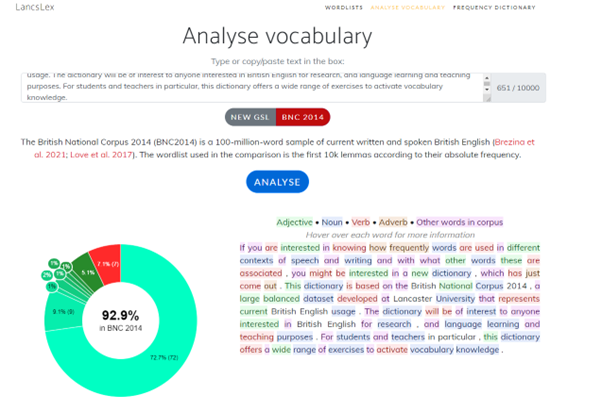If you want to know how frequently words are used in different contexts across speech and writing and with what other words these are associated, you might be interested in a new dictionary, which has just come out. This dictionary is based on the British National Corpus 2014, a large balanced dataset developed at Lancaster University that represents current British English usage. The dictionary will appeal to those interested in British English for research, as well as for the purposes of language learning and teaching. For students and teachers in particular, this dictionary offers a wide range of exercises to activate vocabulary knowledge.

Brezina, V., & Gablasova, D. (2023). A Frequency Dictionary of British English: Core Vocabulary and Exercises for Learners. Taylor & Francis.
The volume is dedicated to the memory of Prof. Geoffrey Leech who inspired this project in numerous ways. As Leech (2011, p. 5) stated, “if asked what is the one benefit that corpora can provide and that cannot be provided by other means, I would reply ‘information about frequency.’” And indeed, there is a lot of information about frequency available in this dictionary. For example, did you know that the adjective important occurs with an average frequency of 321 per million words. It is used most frequently in academic writing and least frequently in informal speech. Important is typically followed by the preposition for or an infinitive and other words such as thing (10 per million words), role (9), part (7), issue (4), factor (4), point (3), question (3), aspect (2), debate (2), story (2), difference (1), feature (1), implication (1), step (1), source (1), element (1), business (1), area (1), consideration (1), component (1) and contribution (1).
The dictionary is accompanied by a website Lancslex that allows active engagement with frequency and distribution information about words in British English. The website’s user-friendly interface facilitates effortless word searches and text analysis for examining lexical sophistication.

Lancslex: Quick access to frequency information

Lancslex: Analysis of vocabulary tool
Reference
Leech, G. (2011). Frequency, corpora and language learning. In F. Meunier, S. Cock, & G. Gilquin (Eds.), A taste for corpora. In honour of Sylviane Granger (pp. 7–31). Amsterdam: John Benjamins.
